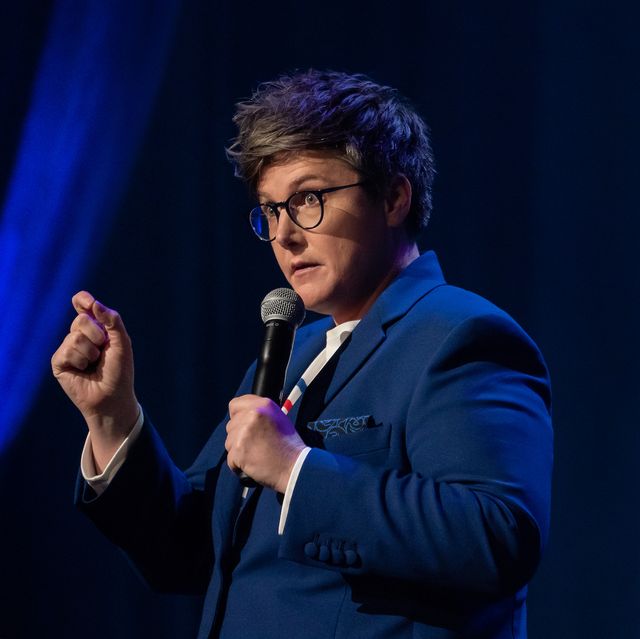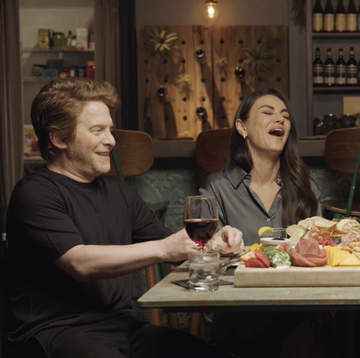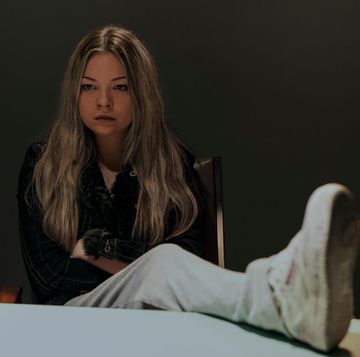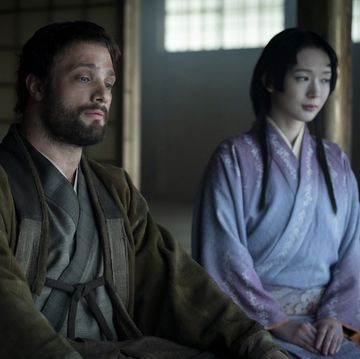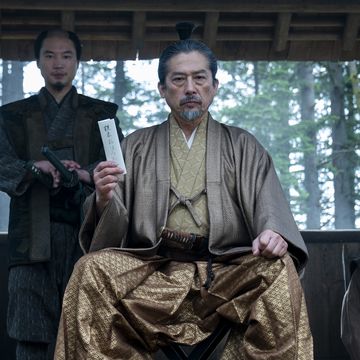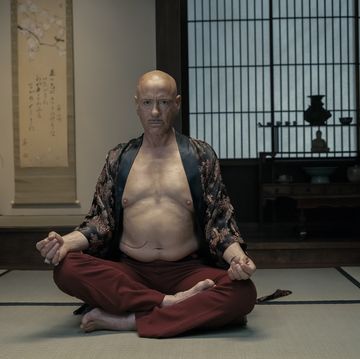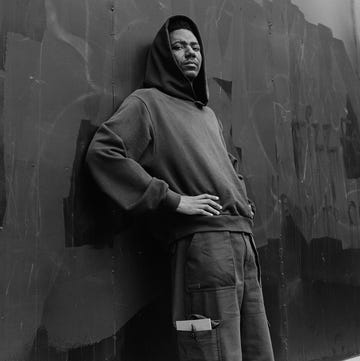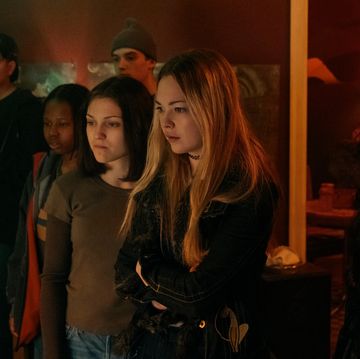When Hannah Gadsby's Nanette debuted on Netflix in 2018 it rewired our understanding of what stand-up comedy can be and do. The special spends about 90 minutes weaving messages about sexism and homophobia into dry, socially aware comedy. It was less of a comedy special and more of a skewering of societal norms. Gadsby took traditional joke structure and deconstructed it and examined how the comedy landscape often works against women and minorities. The special debuted to wide acclaim and turned Gadsby into an international comedy star. But it also became one of the most examined comedy specials in ages, with debate about the format and style of her comedy.
In her second stand-up special, Netflix's Douglas, Gadsby once again shifts our expectations of the format. This new set directly responds to the conversation around her debut special and twists it into angry, essential comedy.
Early in Douglas Gadsby acknowledges that her format was not for everyone. Too much lecturing, some argued. She, respectfully, does not agree. Situated in front of a large golden frame with a neon sign of her dog Douglas inside, Gadsby explains that what she did was not a lecture. But to avoid confusion, for her critics, she gives a full rundown of her set, top to bottom. In a genius bit of meta-comedy, Gadsby includes two literal lectures in her new special, complete with a laser pointer and a slide show. First she runs the audience through her set to come. There will be a section dedicated to her anger, and then she explains there will be a dramatic section dedicated to her autism diagnosis. Oh. And one Louis C.K. joke.
Douglas is proof that Gadsby has incredible range outside of what she became famous for in Nanette. With Douglas, Gadsby sharpens the edge of her socially aware comedy and doesn't fear making fun of everyone—herself included. While Nanette may have come with some tears, Douglas has no time for it. The Australian comic showed how powerful comedy can be in her first outing, but this second time? Hannah Gadsby is here to make clear that she's hysterical, haters be damned. And if you don't like it, that's on you.
Noting that she's "fresh out of trauma," Gadsby uses Douglas as a different kind of airing of grievances. This time it's much more indulgent than what audiences might know her for. For instance, alongside a diatribe about a man's ability to decide what women do with their bodies, Gadsby also complains that we've spent far too much time searching for Waldo of Where's Waldo? fame. It's a much more playful side of the comedian that positions her as an outstanding comic while flipping a bird to the detractors who said that Gadsby's conversational style was too far removed from stand up. Even Gadsby's thoughtful commentary has a "je ne sais, fuck it" quality to it. When discussing how men call women hormonal, she comments, "I've been known to want to nibble on a bit of dark chocolate on a full moon. I don't know? Witchcraft! But I've never had to punch a door, so we all have our things, fellas."
Stand up has always had an observational slant to it, but when it comes to both of her specials, Gadsby's style subverts the norm. Her standup demands a self-awareness from her audience. She is happy to be self-deprecating, but she expects you to do the same, and she expects that you'll be open to what that says about you. The first round of thoughtful exposition in Nanette is spoon fed to you. This time, the jokes punch harder. Ignorance is not forgiven. If it's jokes you want, it's jokes you'll get... perhaps in the key of rage.
That tactic takes a lot of balls (or Karen's Handful—watch the special) because it immediately plays into the tired stereotype of the "angry woman." But Gadsby debunks it by pointing out the frivolity of her own anger, right before she points out the frivolity of yours. She jokes that following Nanette, men found her online to tell her that the special wasn't comedy because they didn't laugh all the way through—to which she says, "Good. If that show made you laugh all the way through, what the fuck is wrong with you?" If Nanette was partially about comedy being a boys' club, Douglas is proof that Gadsby is prepped to take any man down in the ring.
There is a good chance that the same voices who dissented against Gadsby's revamped style of stand up will likely find fault in Douglas, but garnering their praise was never Gadsby's intent. If anything, she acquiesced and gave them the comedy they demanded, disarming detractors of the argument that she wasn't "telling jokes."
For the masses that embraced her raw look at society, they will be treated to something that is unabashedly, bluntly hilarious. And this time, there's nowhere for critics to hide because if you don't like what you've heard this time, it's not because the serious nature of politically correct culture didn't sit right with you. It's simply because you can't take a joke.
